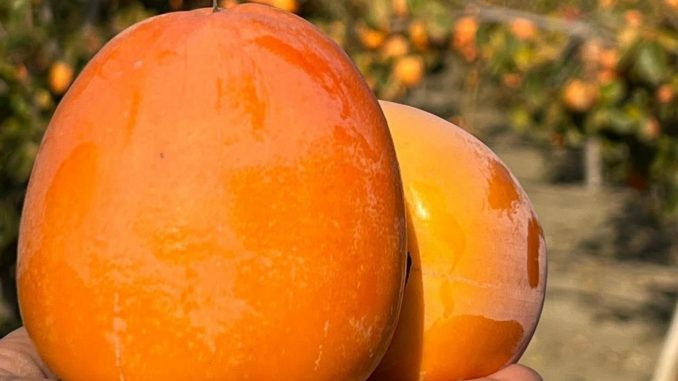
Advertisement
So let say a fruit dealer wants to delve into the business and wants to import fruits from Turkey, the big question is what to source and import and when exactly to import what. So let’s do a quick guide for importers and prospective buyers on the seasons and what’s likely available.
Truely, who doesn’t like the freshness of fruits, imagine pulling off the skin of a healthy banana, or a bite into a just-plucked apple, Quite heavenly to say at least. Taking fruits and vegetables in their natural season ensures freshness, enhanced taste, and optimal nutritional content. Unlike out-of-season produce, which may be harvested prematurely for export, seasonal fruits grown locally are allowed to ripen naturally, preserving their nutrients and superior taste.
Why Import Fruits from Turkey?
Turkey stands out as a global leader in seasonal fruit production, owing to its ideal climatic and ecological conditions. The practice of seasonal eating is deeply ingrained in Turkish culture, ensuring that fruits are harvested at their peak, providing optimal freshness and flavor. Turkey’s global influence in the fruit market is underscored by its consistent export growth.
ALSO READ: 7 Top Skincare and Beauty Product Suppliers in Turkey
Notable examples include plums, with Turkey ranking eighth globally, exporting 220,000 tons to various countries. Strawberry production has witnessed a massive scale-up, and its exports are on a rapid incline. Grapes, particularly the Sultana variety, dominate Turkey’s export charts, with 213 thousand tons valued at 158 million dollars exported to 57 countries in 2020.
Winter Fruits to Import from Turkey:
- Quince,
- Strawberries,
- Citrus fruits
The Winter season
As winter blankets the land, Turkey’s orchards yield a bounty of hearty and immune-boosting fruits. Pomegranates, known as the queen of winter fruits, are abundant, filled with vitamins and exported globally. Quince, strawberries, and citrus fruits, including the unique bergamot, find their way into international markets. The famous Finike oranges and sweet bananas from Anamur’s coastline add a delightful touch to the winter fruit basket.
Oranges, once considered a luxury, have become a staple, with Türkiye cultivating varieties like Jaffa, Washington navel, and Valencia. The country’s unique climate yields oranges split into categories like navel oranges, yellow oranges, blood oranges, and sweet (juice) oranges.
Advertisement
Spring Fruits to Import:
- Sweet cherries,
- Strawberries
- Loquats,
- Green almonds
The spring season
With spring, Turkey bursts into an array of flavors. Lemons, a staple in Turkish cuisine, are exported for their fantastic taste and health benefits. Sweet cherries, loquats, and green almonds are springtime delights. Plum lovers rejoice as Turkey’s green plums, cherished for their tartness, flood the markets.
Strawberries, cherished worldwide, are a vitamin-rich delight originating from the Sultanhisar region of Aydın. Turkey’s strawberry production has seen rapid growth, Strawberry enthusiasts can relish the growing output from the Sultanhisar region of Aydın, known for its superior quality and extended shelf life.
YOU MAY LIKE: Why Turkey’s Trendyol is Listed on the State of Fashion Report
Summer Fruits to Import from Turkey:
- Cherries,
- Apricots,
- Peaches,
- Mulberries
- Grapes, and
- Watermelons
The summer season
During summer, cherries, apricots, peaches, and mulberries grace the markets alongside refreshing watermelons and melons, low in calories and high in nutrients. Grapes, a versatile fruit, dominate the export scene, particularly the Sultana variety from Manisa, contributing significantly to Turkey’s economic prowess.
Autumn Fruits to Import from Turkey:
- Figs
- Autumn apples
- Damson plums,
- Hazelnuts,
- Pears
As autumn arrives, everyone would love to get a taste of freshness, so why thinking of of what and and when to import fruits from Turkey, Be aware that Turkish orchards showcase a mesmerizing array of fruits during this time. Figs, often hailed as the “Fruit of Heaven,” thrive in Aydın Province. Indigenous grapes like Çavuş-Bozcaada in Çanakkale and İzmir Sultaniye grapes boast unique aromas and tastes. Autumn apples, renowned for their nutritional richness, contribute to Turkey’s rising apple exports, with countries like India, Russia, and Iraq being major importers.
Summary
Conclusively, Turkey’s fruits cultivation reflect a commitment to excellence in agriculture. Importers can tap into Turkey’s export prowess to bring a taste of this agricultural abundance to markets worldwide, meeting the rising demand for fresh, seasonal, and nutritious produce.
Do you care to talk to a middleman who would help inspect what you have bought before paying the supplier? Try us at Turkeet
Advertisement
